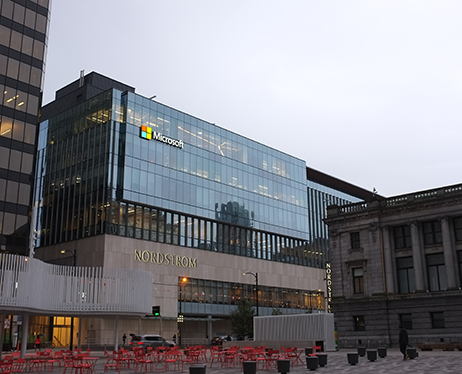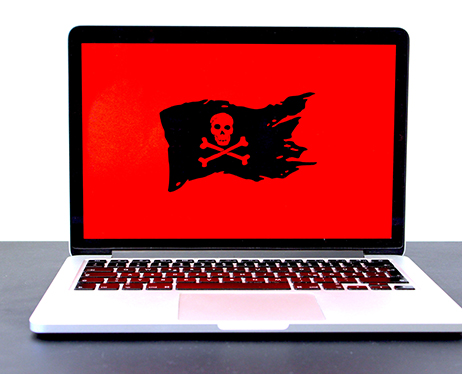Welcome to our Blog
At iPing, we are committed to keeping our clients and readers informed about the ever-evolving landscape of technology and how it impacts businesses. Through our blog posts and news articles, we provide expert analysis, practical tips, and thought-provoking content that can help you stay ahead of the curve and make informed decisions for your IT strategy.
- iPing
A question that is being asked more and more is, is it time to upgrade my computer or replace it? As your computer is an essential piece of equipment used daily in your office, you will have to make sure that it can run modern browsers, the latest anti-virus software, recent versions of Microsoft Office/Office 365, up to date operating systems and If your computer is becoming a bit sluggish and taking a bit longer to boot up or run certain programmes then you either have to upgrade or replace your computer.
Upgrading your computer can be easily done and it can be done by adding more memory, replacing your hard disk with an SSD (Solid State Disk) drive or replacing your computers OS (operating system), it will run a lot faster. With more memory and or an SSD drive your computer will feel as good as new and it will boot up faster enabling you to do more work seamlessly. By upgrading your OS, you will also be able to run the latest software in a secure environment, as it will receive updates that will patch any security risks and bugs that might cause issues.
The OS that you have on your computer will determine how easy it will be to upgrade it, and in some cases you will have to buy a new computer. If you are running windows Vista on your computer you won’t be able to upgrade your OS and will have to buy a new computer as Microsoft are no longer supporting it. If your computer is still running Windows 7 you will have to upgrade to Windows 10. If your computer is running the latest version of Windows 8 known as Windows 8.1 Update, it will still have mainstream support until January 2018 so you will soon have to upgrade to Windows 10.
iPing are experts and we spend a lot of time helping our clients decide if upgrading or buying a new computer is the best option for them! If you are thinking of upgrading your computer please get in touch.
iPing provide managed services and IT services and we can help provide you with an overview of your IT equipment and tell you if you should upgrade or replace any of your computers. So, if you need some help with the above please contact us or give us a call on 01 5241350.
- iPing
One of the most important pieces of equipment that your business uses will be a printer and with 2 different types of printer available, inkjet and laser which one should you be using?
Inkjet printers
Inkjet printers are designed to give you laser quality printing without paying the high price of a laser printer and its print cartridges. Inkjet printers can be cheap to buy and you can get colour or black and white models whilst all in one version's also have a built-in fax and scanner and can be wireless. If you are printing charts or reports that have some colour pages then a colour printer will suit you but If you are printing off invoices then a black and white model will suit you. The only downside to inkjet printers is how often you will have to replace the cartridges and if you have a colour model you will have to replace 4 cartridges
Laser printers
Laser printers have come down a lot in price making them an affordable option and like inkjet printers, you can get colour or black and white models and all in one version's also come with built-in faxes and scanners and can also be wireless. Laser printers are also known as work horses as you can print from between 2000 – 20,000 pages on one laser toner cartridge.
If you are printing a lot of pages on a regular basis then the obvious choice would be the laser printer but HP has recently introduced a range of inkjet printers under the HP Wide brand that will print as many pages on one cartridge as an average laser printer. The HP Wide inkjet printers, which can be bought as black and white or colour models, cost a bit more than your average HP inkjet but they will save you money in the long term as their cartridges will last a lot longer.
If you want to discuss what printer is best for you please give us a call!
iPing provide managed print services and IT services and we can help provide you with printer solutions for your business especially the HP Wide range of inkjet printers. So, if you need some help with the above please contact us or give us a call on 01 5241350.
- iPing
Some information we just got from Microsoft I thought was worth sharing.
"Research shows that our customers are actually enabling their cyber attackers: despite all the warnings, a staggering 30% of recipients open phishing messages and 12% open malicious attachments. So it’s no wonder two-thirds of cyber threats can be traced to phishing attacks. "
Please don't be one of the above statistics and make sure you and your employees exercises caution when opening emails from unknown senders or if you are unsure about an email don't open it. Then ask you IT Service team about it.
Any questions give us a call here at iPing HQ
- iPing
Until recently what has been the most essential tool in your business has changed every couple of years but over the past five year's it has been your Wi-Fi. Your Wi-Fi is your gateway to the internet and without it you can’t send or receive emails, update your website, access your SaaS software and any social media accounts that your business might have. So how secure is your Wi-Fi and do you know who is accessing it?
If you have open Wi-Fi access, where any of your staff or your customers don’t need a password to access it what are some of the problems that you could be facing?
Your bandwidth usage can go through the roof and you may end up with your broadband speeds being throttled and you might be facing a huge broadband bill. If someone parks outside your business and uses your Wi-Fi to access their Netflix, Amazon Prime accounts or even YouTube your bandwidth usage will increase.
People using your Wi-Fi could be using it to access and download illegal material such as pirated movies, TV shows and music, and as this is done via your Wi-Fi account you could end up facing heavy fines.
If it’s known that you don’t need a password to access your Wi-F, what’s stopping someone else creating a rogue Wi-Fi access point (also known as an Evil Twin) designed to make it look like users are using your Wi-Fi. By using this rogue Wi-Fi setup, they can then access any data going through it especially passwords and financial details and any computers using it.
Does your Wi-Fi connection appear as the name of your Wi-Fi router or your broadband supplier? If this is the case you are making it so much easier for people to access your Wi-Fi, so make sure to change what it is called.
If your Wi-Fi connection has a password how often is it changed? Changing your Wi-Fi password on a regular basis is very important especially if you own a business such as a coffee shop or a pub where your customers regularly use your Wi-Fi.
At iPing we install robust enterprise level WiFi for SMB's and if you need a businesses level WiFi give us a shout!
iPing provide managed services and IT services and we can help provide you with an overview of your Wi-Fi setup and how you can improve it and make it more secure. So, if you need some help with the above please contact us or give us a call on 01 5241350.
- iPing
Thought I would do a quick post of this beast of a custom built computer that we just put together. This is a state of the art rig and a real beauty!
Some Specks are
CPU = i7 7700K 4.2GHz by default
Graphics card = Nvidia 1060 TI
Memory = 32 Gig DDR4 3200 MHz
This Computer has a sound insulated case so it is inaudible!
- iPing
I came across an interesting problem today that had me scratching my head for an hour or so and could not find anything in google to resolve the issue.
I was in the office of one of our clients and he had just setup a rule in Outlook 2016 to move all the email from his lawyer into a folder. This is simple stuff so far.
He then decided to move the folder that he had the rule on to a new location and all of his email just disappeared.
All the email also disappeared on the IMAP email server and at this stage things were starting to look very bad. There was a lot of important information and advice from the lawyer in the email folder that had built up over the past year.
Once I was able to confirm exactly where the folder had been all we had to do was recreate the folder with the exact same name. Like magic the emails started to appear back into the folder.
The problem seems to be something to do with having an email rule setup to move things to an non existing folder. Outlook seems to put the emails into limbo.
I am going to assume that if the folder was renamed this would cause the same issues.
This issue can also be resolved by going into rule manager in Outlook 2016 and updating the folder selection to where you moved the folder to.
The client was very happy that he had a managed IT contract with iPing and we were able to get him all his important email back!
If you would like iPing to manage your IT please contact us
- iPing
Did you know that there may be hidden security risks in your office and that they can be found on your computer? These security risks can make you more vulnerable to data loss and data theft. So, what are these risks and how can you combat them?
There are four main security risks that you should be worried about and these risks are:
1 - The browser/browsers that are installed on your computer can be a security risk, especially if they are not updated on a regular basis or no longer supported. Older versions of Internet explorer are no longer supported and only internet explorer 11 and its replacement Edge are still supported by Microsoft. If you use other browsers such as Firefox and Google Chrome, make sure that you have the latest versions installed.
2 - The operating system that is running on your computer might not be supported anymore by Microsoft and that means you can no longer get updates for it. Microsoft ended mainstream support for Windows Vista 5 years ago and they will end extended support in April 11, 2017. Microsoft ended extended support for Windows XP in 2014. The extended support for Windows 7 ends on 14 January 2020 while the mainstream support for Windows 8 ends on 9 January 2018 (and extended support for Windows 8 ends on 10 January 2023). The difference between mainstream support and extended support is explained here.
3 - Legacy software and legacy systems can cause major security headaches and you must ask yourself if you still need them? If you are using older software that only works on an older Operating System, you should think about replacing the software with an up to date version. If this is not possible then you should think about limiting who can use it and if the computer that it is on needs to be connected to your network. If you have an older computer that is still being used, you must ask yourself if it can be replaced and if not take it off your network if it does not require internet or network access. If you are not sure if any Microsoft products that you use are still supported, please click here.
4 - Do you have Anti-virus software on your computers and how often is it updated/upgraded? You should be updating your Anti-virus software whenever an update is available and that should be around three to five times a week. Some Anti-virus software can slow your computer/computers or cause issues with any browser based SaaS software you use. If this is the case look for an alternative that won’t do this, as you might be inclined to just remove the Anti-virus software.
iPing provide managed services and IT services and we can help provide you with an overview of your computer/computers security risks and how you can improve it. So, if you need some help with the above please contact us or give us a call on 01 5241350.
- iPing
Passwords are one of the main things that protect your IT infrastructure and they are also the weakest link, so how often do you change your passwords and what areas of your IT infrastructure is password protected are two questions that must be asked regularly.
Passwords are used when you want to log into your employer’s network onsite or offsite, and they can also be used when you want to access certain folders/directories in your employer’s IT network.
Make sure that your employees :
1- Never have an open network that allows you to access everything once you have keyed in your password to log into your computer. When Sony got hacked a few years ago, the hackers hacked into the main network and then had access to everything on the network as every user had open access to everything on the network. They also found a file called passwords which had the login details and passwords for every employee who had access to Sony’s network. Make sure that users only have access to files, folders and software that is relevant to their job, why should the HR department have access to all the files, folders and software used by the website development team.
2 - Never leave Post it’s with passwords written on them on your computer screen or your desk. If you need to write passwords down, keep them in a notepad that is locked away in a drawer that only one person has access to, or use .
3 - Never have passwords that are too easy to crack, make sure that they are a minimum of eight characters long, comprised of alphanumeric characters, must have at least one uppercase letter and have a symbol. Passwords like your partner’s name, your children’s name or your date of birth are way too obvious. One of the easiest passwords to crack is one belonging to someone in your IT support department, because as they have so many passwords to remember, they make sure theirs is so easy to remember.
4 - Make sure that passwords are changed on a regular basis such as once a month or once every two months. The more often they are changed the harder it will be to crack them and make sure that everyone is reminded to change their password on a regular basis.
iPing provide managed services and IT services and we can help provide you with an overview of your IT networks password setup and how you can improve it. So, if you need some help with the above please contact us or give us a call on 01 5241350.
- iPing
If you have a system failure in your organisation, two important questions will come to mind. How long will it take you to get your organisation up and running again? How much downtime and data loss can you afford?
This is where business continuity should come into play as it’s where an organisation has planned and prepared how it can continue to operate when faced with major incidents or disasters. Your organisation continuity plan should have three core components resilience, recovery and contingency.
Resilience
You can increase your organisation’s resilience by redesigning all its critical functions and infrastructures with various disaster scenarios in mind. What this should include is staff rota’s and data redundancy. This will help you maintain essential services on and off site.
Recovery
You must be able to recover or restore critical and less business functions and this can be done by setting recovery time objectives for different systems, networks and applications. Recovery time objectives will help you prioritise what needs to recovered or restored first.
Contingency
Your organisation will have procedures in place to deal with whatever incidents and disasters might occur, including ones that could not be foreseen. Contingency preparations are only brought in to play when resilience and recovery arrangements have not worked.
When you start thinking about business continuity, you should also be thinking about your data and how it is backed up. Backing up your data can be done in three ways:
You only backup your data, and this is normally stored on a local external hard disk or in the cloud, but you could use both just in case you might encounter issues with your local external drive. If you only need your data back as quickly as possible then this is the backup solution that you should be doing, as backing up your data can be done daily.
You clone your hard disk which results in an exact duplicate of your hard disk being made. This is more useful when you need to reinstall an OS and any software needed, especially if you have a disk failure and you need your systems back on line yesterday. This will require you having one or more donor hard disks that will be used to clone your hard disk.
You make an image of your hard drive and this is where image backup software copies everything on your hard drive into a large compressed file which can be saved in the cloud or an external hard drive. Images can be very handy as you can store various images at the same time and this can come in handy especially if you have malware/viruses infecting your hard disk and you want to bring your last known good configuration.
Each of the three-backup solutions have their uses, but when you need to be up and running as quickly as possible you must choose which one suits you best and decide how often you will back up your data, clone your hard disk and make images of your hard disk.
iPing provide managed services and IT services and we can help you with your business continuity and how you back up your data. So, if you need some help with the above please contact us or give us a call on 01 5241350.









